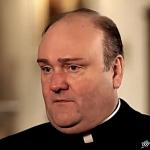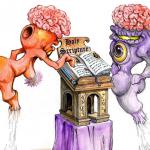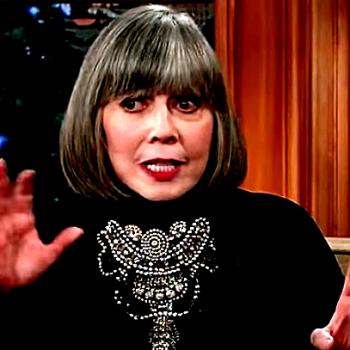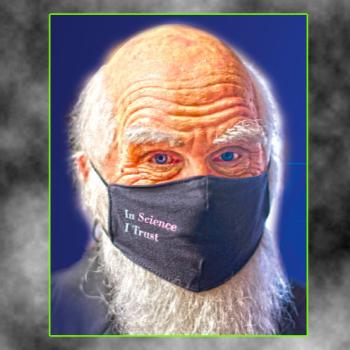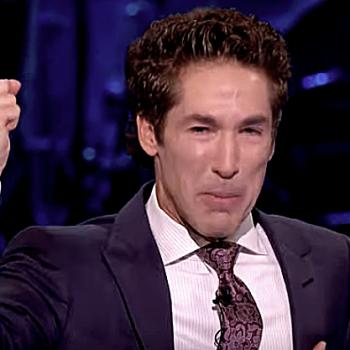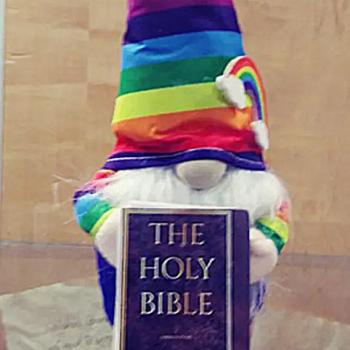
EVERY day I read further discouraging news about the spread of Covid-19 in areas where the take-up of vaccines is lamentably low.
Yesterday, for example, Religion News Service reported that:
As quickly as one COVID patient is discharged, another waits for a bed in northeast Florida, the hot zone of the state’s latest surge. But the patients at Baptist Health’s five hospitals across Jacksonville are younger and getting sick from the virus faster than people did last summer.
Baptist has over 500 COVID patients, more than twice the number they had at the peak of Florida’s July 2020 surge, and the onslaught isn’t letting up.
Hospital officials are anxiously monitoring 10 forecast models, converting empty spaces, adding over 100 beds and “bracing for the worst,” said Dr. Timothy Groover, the hospitals’ interim chief medical officer.
The system is working overtime to get a pro-vaccine message out, but it’s competing against rumours that filter through social media feeds to local BBQs and church congregations.
Black leaders in the community told The Associated Press they’ve heard everything, including that the government is using the vaccine to implant tracking devices.
Said Dr Rogers Cain, a Black primary care doctor with a predominantly Black practice:
We’ve done a massive effort at educating. But it hasn’t really came through.
Thousands of miles away, on Saturday, Groote Schuur hospital in Cape Town was besieged by anti-vaxxers. More than 78,000 people have died of Covid in South Africa.
Reports such as these prompted Phil Zuckerman, Associate Dean of Pitzer College and the author of What It Means to be Moral to pen a piece for Salon.
Beneath the headline “Staunch atheists show higher morals than the proudly pious, from the pandemic to climate change” he began by referring to the ghastly Cardinal Raymond Burke, an outspoken anti-masker/vaxxer who was put on a ventilator after he tested positive for COVID-19.

Burke, above, who claimed that the only cure for the virus is God and Jesus Christ, is now off the ventilator and out of intensive care, with, no doubt, credit being given to universal prayer.
Zuckerman then referenced climate change, saying that the global pandemic and the rapidly warming of our planet are:
Deeply moral matters in that they both entail care for the well-being of others and a desire to alleviate misery and suffering.
Now, while most people assume that such a morality is grounded in religious faith, and while it is certainly true that all religions contain plenty of moral ideals, in our nation today, it is actually the most secular among us who are exhibiting a greater moral orientation – in the face of deadly threats – than the most devout among us, who are exhibiting the least.
Before proceeding, let me make it clear: When I say the ‘most secular among us,’ I mean atheists, agnostics, people who never attend religious services, don’t think the Bible is the word of God, and don’t pray. Such self-conscious and deliberatively irreligious people are to be distinguished from the lackadaisically unaffiliated – often called ‘nones’ – who simply don’t identify with a religion.
He then asserted that it is:
The affirmatively godless who are exhibiting greater moral proclivities in our nation today than the proudly pious.
Regarding the pandemic, he said:
Surely, to be moral in the face of such a dangerous disease is to do everything one can – within one’s limited power – to thwart it. No moral person would want to willfully spread it, bolster it, or prolong its existence. And yet, when it comes to the battle against COVID-19, it is the most secular of Americans who are doing what they can to wipe it out, while it is the most faithful among us, especially nationalistic white Evangelicals, who are keeping it alive and well.

Taking the vaccine saves lives and thwarts the spread of the virus. So, too, does sheltering in place as directed and wearing protective face masks. And yet, here in the U.S., it is generally the most religious among us who refuse to adhere to such life-saving practices, while it is the most secular who most willingly comply. For example, a recent Pew study found that while only 10% of atheists said that they would definitely or probably not get vaccinated, 45% of white Evangelicals took such a position.
Back to climate change:
The best available data shows that – as a direct result of human activity – we are destroying our planet. The results are already manifesting with greater and deadlier frequency: poisoned air and water, massive wildfires, stronger hurricanes, brutal mudslides, quickly melting glaciers, rising sea levels, the wanton disappearance of forests and coral reefs.
Such developments do not bode well for the future; more suffering and death are on the rapidly approaching horizon. And, yet again, what do we see? It is the most staunchly secular among us who understand the science behind climate change and want to do what needs to be done in order to prevent it, while it is the most pious among us who dismiss the science and don’t want to address the dire threat.
For example, a recent PRRI study found that over 80% of secular Americans accept the evidence that human activity is causing climate change – and they place addressing climate change at the top of the list of their political priorities – while only 33% of white Evangelicals accept such evidence, and thus place is towards the bottom of their list of political priorities.
Zuckerman then turned to a number of other issues that indicate the vast divide between the pious and the non-religious.
It’s not just the pandemic and climate change that illustrate this widening religious/secular moral divide. Take gun violence. Currently, more Americans die annually from firearms than automobile accidents; since 2009, there have been 255 mass shootings in the U.S.; every few hours, a child or teen dies from a gun wound.
When the founders of the country passed the Second Amendment, they couldn’t have imagined the instantaneous devastation a semi-automatic rifle can do in the hands of one vicious person. And there is no question that Jesus – who taught an unmitigated message of non-violence – would denounce the existence of such weapons.
And yet, who is more pro-gun in today’s America? Not the hardest of atheists. Rather, it is the most fervent of Christians. For but one example: While 77% of atheists are in favor of banning assault rifles, only 45% of white Evangelicals are.
In terms of who supports helping refugees, affordable health care for all, accurate sex education, death with dignity, gay rights, transgender rights, animal rights; and as to who opposes militarism, the governmental use of torture, the death penalty, corporal punishment, and so on – the correlation remains: The most secular Americans exhibit the most care for the suffering of others, while the most religious exhibit the highest levels of indifference.
Zuckerman’s piece is currently riding high on Reddit Atheism, attracting more than 2,000 upvotes.


